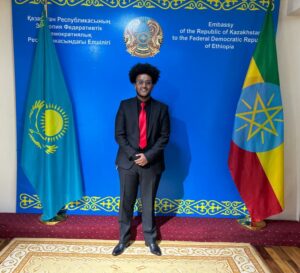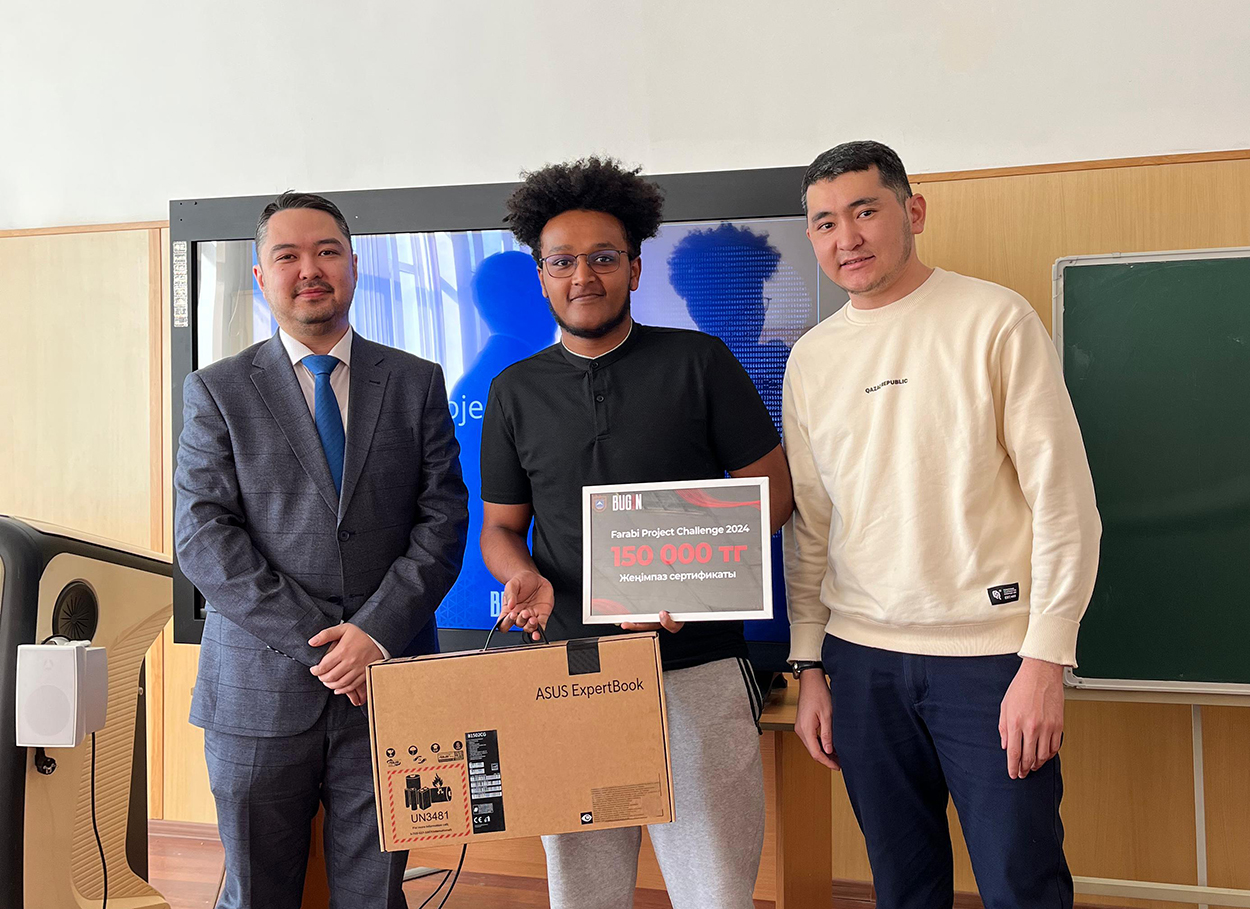ASTANA – “One of the most remarkable aspects of Kazakh society is its meritocratic nature. According to my experience, skills and knowledge matter most, and I have never faced discrimination based on my background,” said Samson Dawit Bekele, a third-year computer science student at Al-Farabi Kazakh National University, in an interview with The Astana Times.

Samson Dawit Bekele, a third-year computer science student at Al-Farabi Kazakh National University. Photo credit: Bekele’s personal archieve
Bekele, originally from Ethiopia, was determined to study at a top research university and relied on platforms like QS Rankings and Times Higher Education to find highly-ranked institutions. While he initially studied in Türkiye, his ambitions led him to Kazakhstan after discovering Al-Farabi University’s prestigious reputation, ranked 150th in the QS World University Rankings in 2022.
Accepted into the Bologna Process scholarship program, which covered his tuition and provided a stipend, Bekele emphasized that despite the challenges of being an international student, his experience in Kazakhstan has been overwhelmingly positive.
“The people are warm and welcoming, and Almaty, with its lush greenery and stunning mountain views, is breathtaking. It felt like stepping into a scene from a movie, and I knew I would thrive here,” he said.
Cultural connections
Discussing the cultural contrasts and similarities between Ethiopia and Kazakhstan, Bekele emphasized that both nations share a profound emphasis on hospitality and communal values.
“What impressed me most is the mutual respect that defines social interactions here. Professors greet students with warmth and respect, often shaking hands—a gesture that is not as common in Ethiopia,” he said, noting how terms such as “agai” (older brother) and “apai” (older sister) convey respect and closeness.
While language has been a challenge, Bekele viewed it as an opportunity to develop new skills and become more independent.
“I have learned enough Kazakh to get by in my daily routines, and this experience made me more self-reliant in my studies and routines,” said Bekele.

Bekele during his trip to the Shymbulak ski resort. Photo credit: Bekele’s personal archieve
He also noted differences in family life between the two countries, observing that Kazakh people tend to marry earlier while balancing family and career, whereas in Ethiopia’s urban areas, people often marry later, focusing on personal and career development first.
Kazakhstan’s merit-based environment has been crucial for Bekele.
“This culture of meritocracy allowed me to join my department’s scientific research lab, where I have contributed to real-world research. The experience has been transformative, reinforcing my belief that hard work is genuinely valued here,” he said.
A vision for Ethiopia’s educational future
Bekele praised Kazakhstan’s education system for its practical, hands-on approach, with a balance of lectures, seminars, and laboratory sessions.
“Laboratory sessions, where theory meets practice, are invaluable. Students are also encouraged to take courses on platforms like Coursera to broaden their understanding,” he said.
Bekele believes that Ethiopia could benefit from similar educational practices, such as smaller class sizes and a balance between theoretical knowledge and practical application.
He also appreciated Kazakhstan’s research opportunities, made possible by significant national investment, noting that this model could inspire Ethiopia to nurture local talent and support innovative projects.
Bekele highlighted the country’s Bolashak program, which supports graduate students and postdocs studying abroad. He hopes to establish a similar program in Ethiopia to boost local expertise.
“By investing in its brightest minds, Ethiopia could accelerate its progress in various fields,” he said.

Bekele secured victory in this year’s Al-Farabi project challenge competition. Photo credit: Bekele’s personal archieve
He also advocated for Ethiopia to adopt Kazakhstan’s dual-supervision model for PhD students, where students have both a local and international supervisor, ensuring high-quality mentorship and global exposure.
Reflecting on his time in the country, Bekele said it expanded his understanding of global citizenship.
“I now realize that global citizenship is not just about recognizing diversity but also about fostering an environment where different ideas, cultures, and knowledge systems can coexist and collaborate,” he said.
Kazakhstan’s position at the crossroads of Europe and Asia has deeply influenced his worldview, reinforcing the importance of inclusivity and cooperation.
Looking ahead, he expressed a desire to foster international cooperation between Ethiopian universities and leading institutions in Kazakhstan. He noted that replicating the country’s model of investment in research and innovation could be transformative for Ethiopia.
“Kazakhstan allocates significant funding for scientific research, providing opportunities through grants and competitions aimed at young scientists,” he said, underscoring the importance of such initiatives.
He added that he hopes to work on initiatives that promote cultural exchange programs between the two countries.
“These programs could allow students from both countries to experience each other’s cultures, gain insights into different educational systems, and develop a deeper understanding of global citizenship,” he said. “Cross-cultural learning would not only enrich students academically but also promote tolerance, cooperation, and shared responsibility in addressing global challenges. Such exchanges could be a powerful tool in strengthening diplomatic and cultural ties between our nations.”
